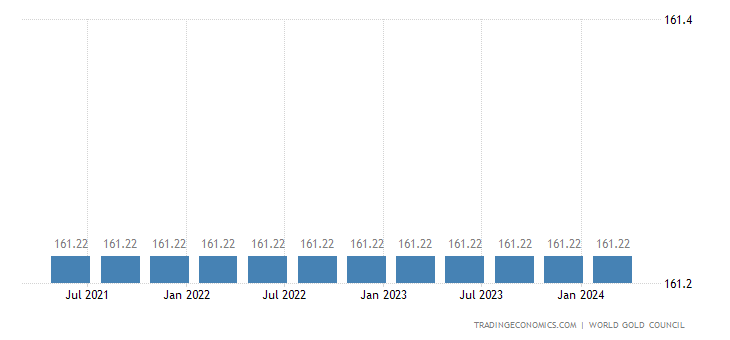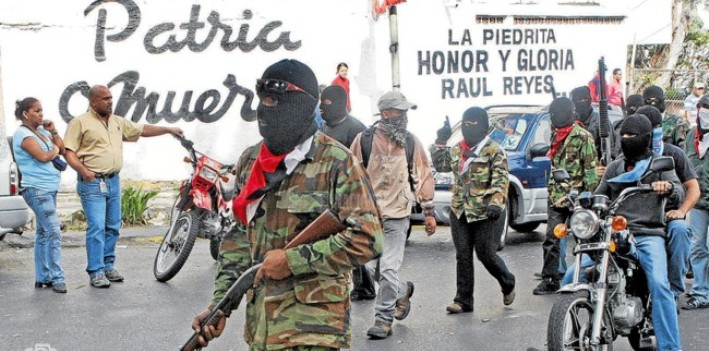Yes and that newest caravan is in Honduras now and it is estimated to be 20,000 strong. Caravans get largest as they move north. Border Patrol has sounded the alarm and so has DHS. Anyone left in Honduras?

By the way, the United States via all government agencies gave Honduras $180,977,214 in foreign aid in 2017. The money is designated for local governance, counter-narcotics programs, reading programs, treaties, violence prevention, human rights and the justice system…..ever wonder where Congress is on this or an Inspector General? (click that link, it is interactive)
‘Mother of all migrants’ caravans’ is forming up in Honduras: interior secretary
A massive cohort of prospective migrants dubbed the “mother of all caravans” is forming in Honduras, the federal interior secretary said today.
“We are aware that a new caravan is forming in Honduras that they’re calling the mother of all caravans . . . and which could be [made up of] more than 20,000 people,” Olga Sánchez Cordero said.
She didn’t offer any details about when the caravan might leave Honduras to start the journey towards Mexico and on to the United States’ southern border.
The interior secretary told reporters that migration and specifically the formation of the huge caravan was a central issue in talks she held yesterday with United States Secretary of Homeland Security Kirstjen Nielsen in Miami, Florida.
Sánchez said Nielsen told her that United States authorities returned at least 76,000 migrants to their countries of origin in February and expect to deport more than 90,000 this month and a total of 900,000 by the end of the year.
The Department of Homeland Security (DHS) said in a statement that Nielsen and Sánchez “discussed ways the U.S. and Mexico can work together to address irregular migration and the record levels of illegal entries at the U.S. southern border.”
Thousands of migrants fleeing poverty and violence in Honduras, Guatemala and El Salvador have entered Mexico at the southern border since late last year as part of several large caravans.
Despite the federal government issuing more than 10,000 humanitarian visas that allow migrants to live and work in Mexico for up to 12 months, most caravan members have chosen to travel to the United States border to seek asylum.
Yet another migrant caravan made up of around 2,500 Central Americans and Cubans is currently traveling through Chiapas after leaving Tapachula last weekend.
Caravan members walk long distances through Mexico in often hot conditions but also try to hitch rides to reach towns on the well-trodden migrant route more quickly.
Sánchez said today that there is evidence that criminal groups are transporting migrants from Tapachula to the northern border in trucks and charging each person thousands of dollars for the service.

“. . . Imagine the size, the dimension of this migration flow, which is sometimes human trafficking by organized crime, the business of this trafficking . . . is several billion dollars,” she said.
“. . . Each migrant represents between US $2,000 and $6,000 for them . . .” Sánchez added.
The interior secretary said that authorities will seek to better patrol the entire 1,020-kilometer stretch of the southern border in order to contain flows of people entering Mexico illegally. She pointed out that there are 370 illegal entry points and just 12 official ones.
However, Sánchez said there won’t be any move to militarize the border.
Instead, migration checkpoints manned by Federal Police and Civil Protection personnel will be set up on the Isthmus of Tehuantepec to halt migrants who have entered Mexico illegally.
“. . . We have to make a response because there cannot continue to be hundreds of thousands of migrants passing through Mexico and arriving at the northern border,” Sánchez said.
She added that as part of the strategy to curb migration the government will no longer issue long-term humanitarian visas.
Irineo Mujica, a member of a migrant advocacy group that accompanies migrants as they travel through Mexico, said Mexico had stopped granting humanitarian visas “to comply with the expectations of [United States President Donald] Trump.”
However, Sánchez said Mexico itself is struggling to cope with so many migrants currently in the country, pointing out that there is an overwhelming number of asylum seekers in shelters in northern border cities.
Due to the United States government’s introduction of a “metering” system that limits the number of asylum requests immigration authorities will hear on a daily basis, migrants face long waits in border cities, many of which have high rates of violent crime.
Even after they have filed claims for asylum, there is no guarantee that migrants will be allowed to wait in the United States for their cases to be heard at immigration courts – as was previously the case – due to the introduction and subsequent expansion of the so-called “Remain in Mexico” plan.
The Secretariat of Foreign Affairs (SRE) said earlier this month that “the Mexican government doesn’t agree with this unilateral measure implemented by United States authorities” but continues to receive people anyway for “humanitarian reasons.”
Mexico and the United States agreed in December to cooperate on a US $35.6-billion development plan in southern Mexico and Central America to curb migration but critics pointed out that most of the U.S. funding is not new as it will be allocated from existing aid programs.
Secretary Nielsen traveled to Tegucigalpa, Honduras, today to meet with officials from that country as well as Guatemala and El Salvador.
The DHS said Nielsen and Northern Triangle security ministers have been working on “a first-of-its-kind memorandum of cooperation – or ‘regional compact’” – that “focuses on stemming the migration crisis at its source, including preventing the formation of new migrant caravans that set out to reach the United States.”




 Analysts claim Uganda is a gold smuggling hub (Photo:
Analysts claim Uganda is a gold smuggling hub (Photo: 


